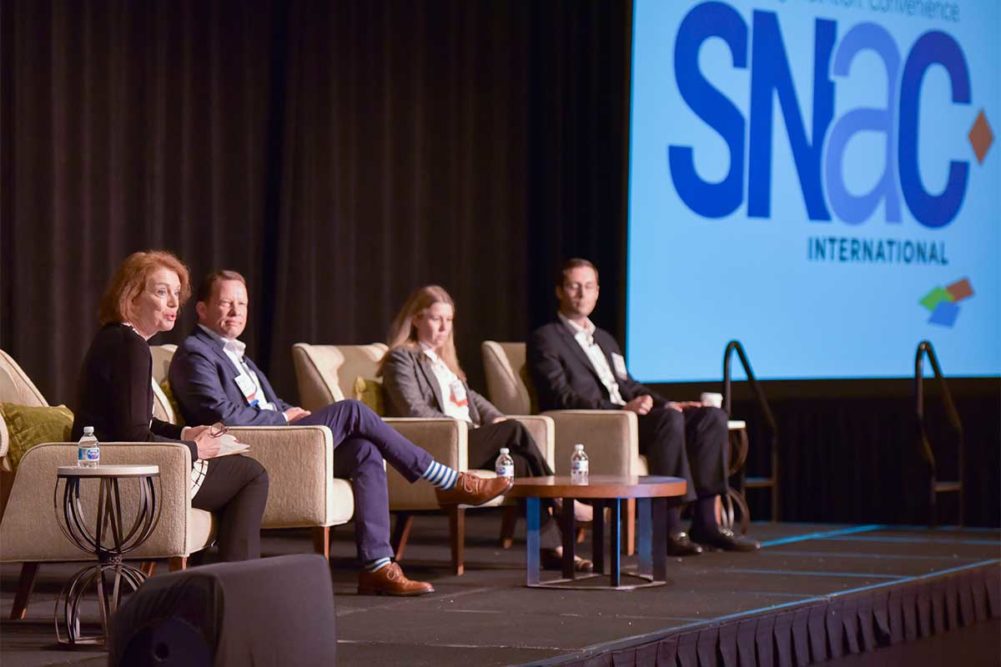MARCO ISLAND, FLA. — As the movement toward greater environmental, social and governance (ESG) goals gains further momentum, snack producers will often find themselves on a wide-ranging and seeming never-ending initiative.
However, those experts who are taking that journey have one bit of advice. Take it one step at a time, noted panelists at SNAC International’s Executive Leadership Forum, held recently in Marco Island, Fla.
“We don’t have to move forward in everything,” said Alicia Sexton, senior sales manager, Wyandot Snacks, Marion, Ohio. “We don’t have to save the world in every aspect of these categories, but we can say, ‘Hey, we’re really strong here. Let’s play on our strengths’ or ‘we’re really weak here. Let’s improve on our weaknesses.’ ”
Moderated by Elizabeth Avery, president and chief executive officer, SNAC International, the panel looked at how ESG impacts every part of a business. The topics range from environmental concerns such as climate change, water usage, energy conservation and recycling to social and government issues, including diversity, worker salaries, executive compensation and the supply chain.
Jeff King, senior director global sustainability and social impact, The Hershey Co., Hershey, Pa., suggested that businesses face “multiple pressure points” from the press, retail customers, consumers, investors and even government entities such as the US Securities and Exchange Commission on these wide range of topics.
“I’ve been sitting on more shareholder calls in the last six months than during the past six years,” he said.
One recent hot topic, he added, involves extended producer responsibility (EPR) for packaging. Passed in Maine and Oregon this year, the laws require companies to meet specified recycling rates and/or meet recycled content standards in their packaging or pay a fee on conventional packaged goods.
“There’s a list of very large states, both red and blue, that we think will pass EPR legislation in the next two years because it’s a means of generating money for the state,” Mr. King explained. “If you’re in flexible packaging, like almost everyone in this room, you’re going to be paying taxes on it if it’s not recyclable, and they’re looking at the recycled content going into packages. You’re going to need to change your packaging.”
To quantify its ESG initiative, Wyandot Snacks became a Certified B-Corp., a comprehensive program that measures the social and environmental performance of for-profit companies through several measures and assists companies in implementing internal practices to achieve their goals.
Ms. Sexton noted that Wyandot Snacks began exploring certification in 2018. Because the company doesn’t have a structured ESG department, the snack manufacturer brought in people from human resources, finance, operations and more to answer about 200 questions on its government, community and environmental involvement.
“It became a means of telling us where we are, where we can improve and where we want to move forward,” Ms. Sexton said.
Paul Stanley, vice president, ESG Solutions, Wells Fargo, said the San Francisco-based banking company is applying sustainability goals in its lending and financial practices, noting that it is becoming increasingly common for ESG to be considered when determining access to capital. He added the key to ESG is to focus on one or two projects and to build from there.
“You can only focus on so many things and making sure that you are focusing on the ESG qualities that are going to give you the biggest bang for your buck for your business,” he said.






